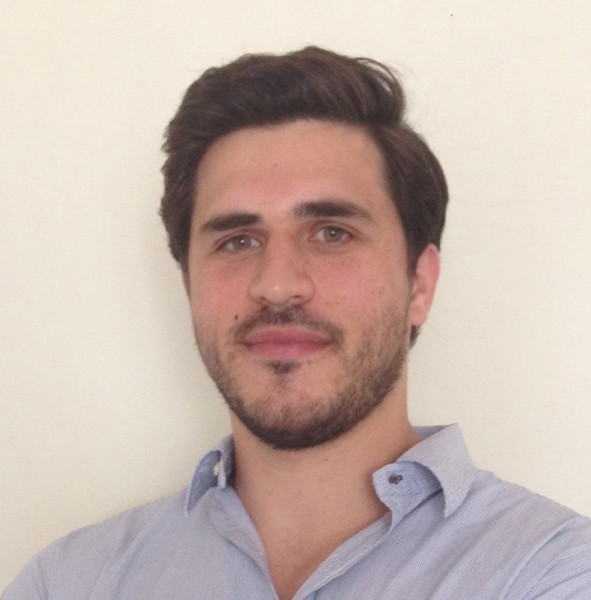
Interview with Gino, a founder skilled in building remote teams
How did you get started with remote work?
I got started with remote work back in early 2015 when I moved to the Bay Area (I’m living in Seattle now and loving the Pacific Northwest). By that time, I had spent around a year working with my team in an office in Lima, Peru.
In 2015, we decided that we would start hiring remote team members based throughout the Americas and not just Lima. That’s what got us started in remote hiring.
We started hiring great people in Argentina, Mexico, Chile, and all of a sudden; we had a company with half remote team members and half in-office team members.
It wasn’t long before many of the team members in our Lima office started requesting to work from home. One of our engineers had to commute for an hour and a half each way (to and from the office).
What’s crazy is that the vast majority of companies throughout Latin America continue to operate this way — basically expecting employees to commute for a couple of hours a day on average. Remote work is growing in Latin America, but more slowly than in other parts of the world.
It’s embarrassing to think that we didn’t think about going remote earlier. Once we did, we noticed a spike in productivity and everyone was citing improved work-life balance.
Soon after, we decided to let go of our office altogether in order to become a 100 percent remote company. Today, we have team members from the U.S., Mexico, Chile, Peru, Argentina, Brazil, and others. We all work from home.
Read 114 answers from other remote workers
What are you working on?
I’ve been leading TECLA for almost six years. We are a hiring platform that helps companies in the U.S. and Europe meet and directly hire top software professionals based throughout Latin America.
To date, we have 3,500+ pre-screened candidates in our network. Most of them are engineers, designers, data scientists, and QA analysts. We have remote candidates who work from Brazil, Argentina, Uruguay, Chile, Colombia, Mexico, and many others throughout the Americas where time zones are very similar to the ones in the U.S.
For clients in North America, we typically help them recruit remote talent. Some companies also offer relocation.
For European clients, we typically help them offer relocation opportunities to candidates in our network. Hiring remotely through our network is a bit more challenging for European companies given the differences in time zones.
Read 107 answers from other remote workers
What's your typical work routine?
I typically wake up around 7:00 am. I try to grab breakfast, but the truth is most days I’m going straight from bed to the computer. It’s one of those habits that’s just so hard to break.
So, on average, I’ll probably start work by 7:30 am or earlier. I work until about 10 am, at which time I take a short break. By 1 pm or 2 pm, I’m taking a longer break—usually 2 hours—to have lunch and go to the gym.
I’ll get back around 3 pm or 4 pm and continue working until about 8 pm.
Read 92 answers from other remote workers
Do you have a dedicated space to work?
I do, but I didn’t always.
I have to say, the difference between having a dedicated space for work and working out of your living room, for example, is drastic.
At least for me, it has proven to be one of the most important factors when working remotely. I know not everyone can afford to have an extra room at home that is exclusively used as an office, but that’s why I make sure I live in areas where I can comfortably afford to have dedicated space in the house that is just set up as my office. The difference in productivity for me is considerable.
Read 93 answers from other remote workers
How do you stay on task?
I am, overall, a pretty big fan of kanban boards. What I do is I use Trello, and I design my lists and cards in a way that resembles a kanban board.
It might seem minimal, but the number one thing that I have to do to stay on task is to only move ONE card at a time to my “In-Progress” list.
What I find is that if I don’t explicitly tell myself to only work on one thing at a time (by using Trello), I will end up working on all things at once and doing nothing correctly.
My brain just goes on this “jump around” mode which means I end up working 10 minutes on something and then jumping to something else.
When I get to the end of the day, I can see that most of my day has been wasted. I haven’t gotten anything accomplished because I ended up jumping around between marketing materials, writing a blog post, checking and replying to emails, taking work calls, etc.
By using Trello, and making sure that I only work on one thing at a time, I’m able to get to the end of the day feeling pretty happy about the quality of the work I got done.
Read 100 answers from other remote workers
What do you like about remote work?
I like flexibility, which means the ability to manage my own time and schedule. It’s easy for me to start working earlier in the day if I know I have to be somewhere at 4 pm or 5 pm.
Overall, at least for me, it’s the ability to work when I want to work. Typically, when I want to do something, it means I’m going to be more engaged and do better work.
Read 106 answers from other remote workers
What do you not like about remote work?
I have to be honest and say that there are times when being face-to-face with someone on our team is much more productive. For personal reasons, outside of work, I’m working on developing a game with a few people. This is where I’ve noticed face-to-face really goes a long way.
For my work at TECLA, I don’t think there’s ever a moment where I’ve said, “I wish I were face-to-face with this person. It’d be so much easier to get this done.” However, in terms of the game, I’m working on, I do have to say it has been a factor. Still, nothing outweighs the benefits of working remotely within our team.
Read 103 answers from other remote workers
What tools do you use to stay productive?
I wouldn’t say these tools help me stay productive, per se, but they do help me stay organized which in turn has an enormous impact on productivity. For me, it’s Trello and checklists (most of the time within Trello cards).
Read 108 answers from other remote workers
What are the challenges of building a remote team?
Many of the challenges are the same as building an in-office team.
One, we are focusing heavily as of late on talent sourcing. Many recruiting managers overlook the importance of sourcing. They think it’s a numbers game.
I think the more effort you put into this stage, the more fruitful the rest of the recruiting process will be. If in the sourcing stage you are putting low-quality candidates into the flow, the interviews themselves aren’t going to do much to make them better candidates.
A lot of recruiting companies and hiring teams place low-level team members on the sourcing side. That makes no sense to me.
What good does a great recruiter and closer do down the line if in the very beginning of the process low-level team members with no technical expertise are putting candidates who are clearly not the right fit into the process?
If I had to focus on some remote-specific challenges when it comes to building a remote team, it could be the hiring manager’s reference network.
If I hire someone locally, I might have a better feel for the reputation and weight of the candidate’s references or past employers. If the job is open to remote candidates and I want to interview a candidate who is based in Buenos Aires, Argentina, a hiring manager in the U.S. could have a harder time placing weights on the reputation of the candidate’s past employers, references, etc.
This also applies for hiring managers who might be in Los Angeles, and they are interviewing a candidate that lives in Miami, Florida. Perhaps the hiring manager doesn’t share many past connections with the candidate, and it’s harder for the hiring manager to get more meaningful references.
Read 11 answers from other remote workers
What are the benefits of building a remote team?
There are many benefits to building a remote team. They are different, however, depending on the exact hiring strategy. It could be a myriad of factors ranging from the talent level, pool size, market salaries, productivity, flexibility, among others.
For us, the biggest benefit of building a remote team is the ability to expand our talent pool exponentially every time we run a new search.
If the job can be done remotely, we really urge companies to at least see what it can do to the level of talent at the company. You are bound to find more qualified candidates in less time —and give your company and team more hiring options— if you open up your hiring to at least meet and interview candidates from all through the U.S., the continent, and even the world.
The more that companies expand their candidate pools, the higher the probability of finding the right fit.
Read 12 answers from other remote workers
What did we forget to ask Gino Ferrand?
At RemoteHabits we're always trying to improve our interviews, what question should we have asked Gino Ferrand?
Biography
Gino Ferrand
Gino is an entrepreneur born and raised in Lima, Peru, and now living in Seattle, Washington. He is the founder of TECLA: a hiring network that connects growing tech companies with pre-screened senior remote software engineers from the U.S. and from around the world.
He believes great people are the #1 ingredient to any successful business, and that remote work is a trend worth keeping an eye on.
Work remotely? Share your story on RemoteHabits!
Want to be interviewed? If you have a remote position, head over to the interview me page!
Looking for a remote job?
RemoteHabits Jobs has everything you need to find your next great remote work position!
Related Interviews
Interview with Molood, a CEO who shares how minimalism has improved her remote work experience
As CEO and Founder of Remote Forever, Molood has made a career in teaching individuals and companies how to work remotely effectively. See how embracing a minimalist lifestyle has caused her to excel.
Company Interview with Jan Fex, CEO of DotDee Digital
A three-hour work commute motivated Jan to establish a full-on remote work arrangement for his company. What have been the benefits & challenges? See his takeaways!
Interview with Shivani, a remote content writer who shares lessons learned
Shivani provides all you need to know about making remote work...work. She shares tips on finding the best remote work opportunity and thriving once you get it.


